Sometime soon jihadists will likely carry out a terrorist attack against the United States. How the Trump administration reacts will have a profound effect not just on national security but on the national psyche, argues Daniel Benjamin. This piece originally appeared in The Wall Street Journal.
Sometime soon jihadists will likely carry out a terrorist attack against the U.S. How the Trump administration reacts will have a profound effect not just on national security but on the national psyche.
Much will depend on the nature of the attack. It may occur in the U.S. and involve one or two operators inspired by Islamic State but not directly controlled by it, as in the Orlando and San Bernardino attacks, or it may be carried out abroad by a cell from that group or by al Qaeda. A major attack along the lines of 9/11 is unlikely, thanks to 15 years of aggressive counterterrorism work by the U.S. and its allies, but it can’t be ruled out.
It would be wise, however, to prepare for some sort of dramatic attack. The incentives for Islamic State in particular are growing fast, as it continues to lose ground in Iraq and needs to reaffirm its status by showing that it can strike at President Donald Trump’s America.
The early actions of the new president and his team suggest that they will opt for a forceful response. This would be in keeping with Mr. Trump’s campaign rhetoric and inaugural address, in which he promised to “unite the civilized world against radical Islamic terrorism, which we will eradicate completely from the face of the Earth.” With that marker on the table, no one should expect his national-security team to opt for restraint.
But terrorists thrive on their opponents’ overreaction, which helps them to advance their narrative and to win over recruits. Cabinet officials, national-security staff and members of Congress should start thinking now about how, when the time comes, they will counsel Mr. Trump.
They should take into account how invaluable America’s Muslim communities have been to law enforcement. Officials report that roughly 40% of the tips that they receive on extremist activity come from these communities. FBI Director James Comey has underscored the value of such ties, saying last summer that American Muslims “do not want people committing violence, either in their community or in the name of their faith, and so some of our most productive relationships are with people who see things and tell us things who happen to be Muslim.”
In the wake of a new attack, it is essential to avoid a replay of the post-9/11 roundup of large numbers of Muslims—American citizens and aliens—as suspects or material witnesses. At the time, more than 1,000 people were held, some for months, and the intelligence produced by this exercise was close to nil.
Repairing the damage from that crackdown took years. Similarly, talk of a total cutoff of Muslims coming into the country or a national registry of Muslims should be shelved. Such rhetoric, especially after Mr. Trump’s ill-advised executive order restricting travel from the Middle East in the name of fighting terrorism, alienates those who genuinely are our first line of defense. It plays into our enemies’ hands.
Rhetoric matters. The aftermath of an attack provides an unparalleled opportunity for leadership, a moment when Americans want to set aside biases and antipathies that seem trivial next to the devastation and loss. Consider George W. Bush’s uplifting remarks to the rescuers at Ground Zero and his visit to a Washington mosque in the immediate wake of 9/11.
Military action will almost certainly be a part of Mr. Trump’s response after an attack, especially given Islamic State’s recent emphasis on radicalizing “lone wolves.” The question becomes when to act. There will inevitably be a desire to move swiftly against the enemy while the attack is fresh in the national memory.
Solid targets are seldom sitting on the shelf in large numbers.
But effective military action usually takes time. Solid targets are seldom sitting on the shelf in large numbers. The imperative is to ensure that there are sufficient “validated” targets—places where real terrorists are living, training and plotting—instead of simply unleashing massive firepower to make a point. Moving too quickly is a recipe for large numbers of civilian deaths, which could undermine public and foreign support at a sensitive juncture.
There’s a good reason that presidents are in the habit of saying that the U.S. will respond “at a time and place of our choosing.” It allows them to take advantage of the laborious intelligence work necessary to find the most valuable targets. A potent, focused response also sends our foes a clear message about our capabilities.
Friends of the administration might also underscore that a president should never let a national-security crisis go to waste. That would mean, in this case, harnessing the energy and focus of the moment to solve serious problems in our counterterrorism efforts, even if the connection to a new attack is tenuous.
High on the list of concerns today is the phenomenon of terrorists networks’ “going dark.” The fast-spreading use of sophisticated encryption has made it increasingly difficult to penetrate the communications of jihadist networks. The last big go-round on this issue involved gaining access to the information on the iPhone of one of the San Bernardino shooters. Apple refused to assist in decrypting the contents for the FBI, arguing that it would undermine its promise of privacy to its customers and sabotage its business.
There is no easy answer to the problem, but there is a need, at the very least, to detoxify the atmosphere and improve the dialogue between the public and private sectors. In the end, the best solution may be more funding for the intelligence community to devise its own solutions. That outcome, too, is more likely to be in reach if the White House uses the period after an incident deftly.
President Trump also might use the moment after an attack to back an effort supported by many counterterrorism experts: local programs that give Muslim communities better resources to deal with individuals who appear to be radicalizing but haven’t committed a crime. Families, friends and teachers who are worried about troubled young people need options that don’t involve law enforcement (unless they think an attack is being planned).
If law enforcement is their only choice from the start, they won’t want to risk sending a nonthreatening individual to jail. Pilot programs of this sort are currently being developed in such places as Boston, Los Angeles and Minneapolis, and have been welcomed by Muslim communities eager to counsel and steer their youth away from dangerous thinking and bad company.
All of this may be far too therapeutic for a president determined to eliminate all Islamic terrorism. But perhaps in a crisis, Donald Trump, who prides himself on his unpredictability, will surprise us.
The Brookings Institution is committed to quality, independence, and impact.
We are supported by a diverse array of funders. In line with our values and policies, each Brookings publication represents the sole views of its author(s).
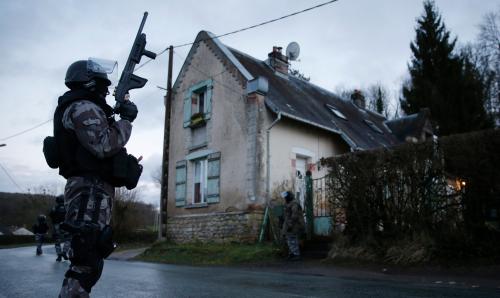
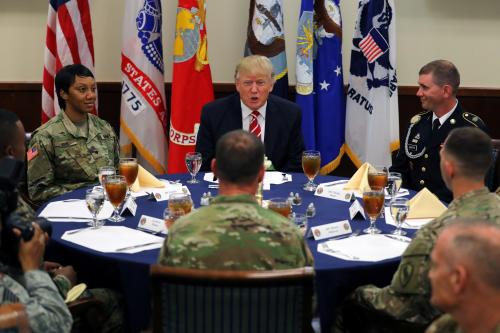
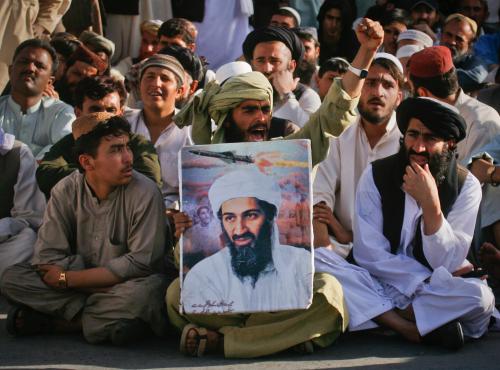
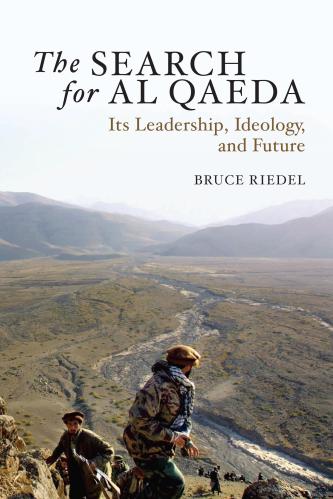
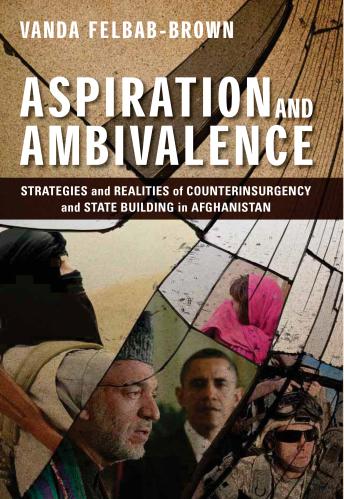

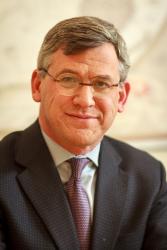



Commentary
Op-edWhat comes after the next terrorist attack
February 14, 2017